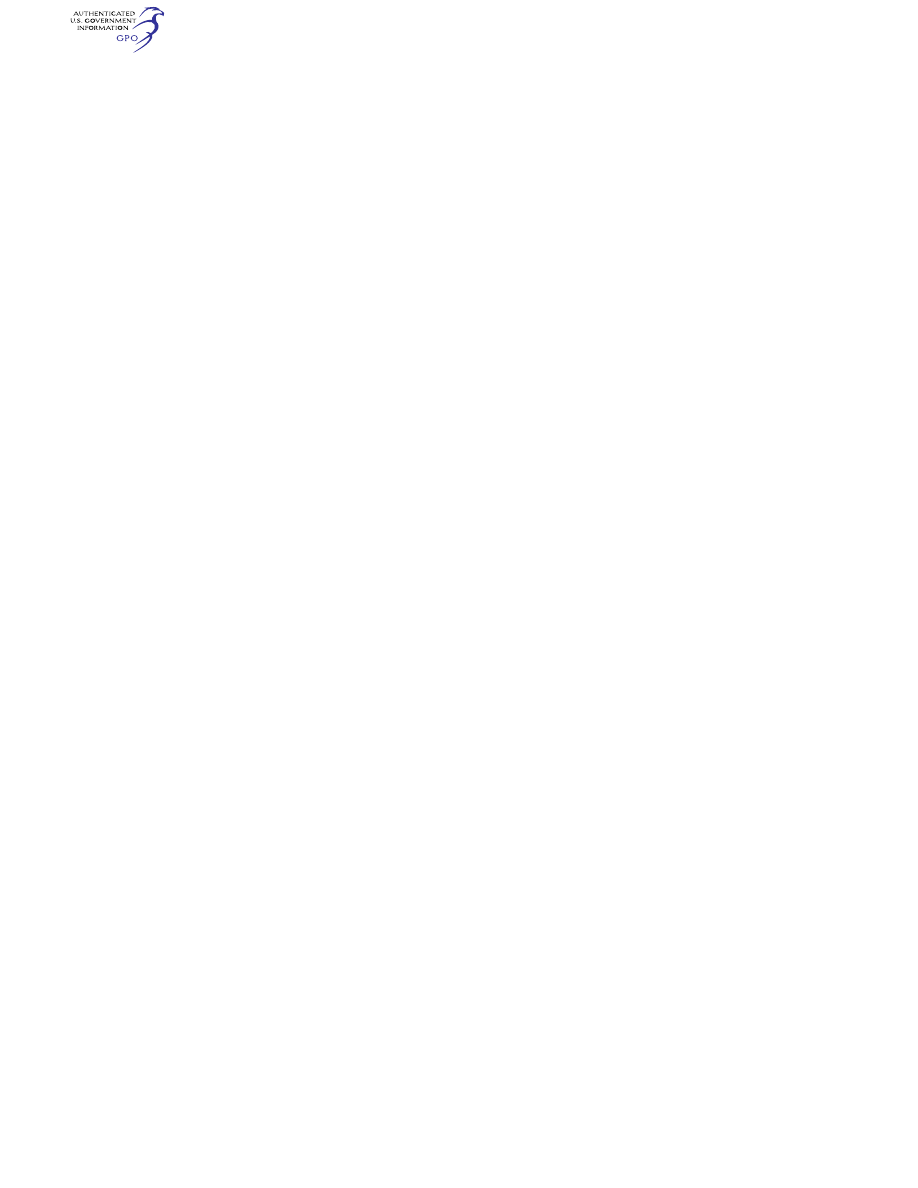
517
Federal Aviation Administration, DOT
§ 27.725
Metallic Materials and Elements for
Flight Vehicle Structures, (Sept. 15,
1976, as amended through December 15,
1978). This incorporation by reference
was approved by the Director of the
Federal Register in accordance with 5
U.S.C. section 552(a) and 1 CFR part 51.
Copies may be obtained from the Naval
Publications and Forms Center, 5801
Tabor Avenue, Philadelphia, Pennsyl-
vania, 19120. Copies may be inspected
at the National Archives and Records
Administration (NARA). For informa-
tion on the availability of this mate-
rial at NARA, call 202–741–6030, or go
to:
http://www.archives.gov/federal-reg-
ister/cfr/ibr-locations.html
(5) Pulleys must have close fitting
guards to prevent the cables from being
displaced or fouled.
(6) Pulleys must lie close enough to
the plane passing through the cable to
prevent the cable from rubbing against
the pulley flange.
(7) No fairlead may cause a change in
cable direction of more than 3
°
.
(8) No clevis pin subject to load or
motion and retained only by cotter
pins may be used in the control sys-
tem.
(9) Turnbuckles attached to parts
having angular motion must be in-
stalled to prevent binding throughout
the range of travel.
(10) There must be means for visual
inspection at each fairlead, pulley, ter-
minal, and turnbuckle.
(e) Control system joints subject to
angular motion must incorporate the
following special factors with respect
to the ultimate bearing strength of the
softest material used as a bearing:
(1) 3.33 for push-pull systems other
than ball and roller bearing systems.
(2) 2.0 for cable systems.
(f) For control system joints, the
manufacturer’s static, non-Brinell rat-
ing of ball and roller bearings must not
be exceeded.
[Doc. No. 5074, 29 FR 15695, Nov. 24, 1964, as
amended by Amdt. 27–11, 41 FR 55469, Dec. 20,
1976; Amdt. 27–26, 55 FR 8001, Mar. 6, 1990; 69
FR 18803, Apr. 9, 2004; Doc. No. FAA–2018–
0119, Amdt. 27–49, 83 FR 9170, Mar. 5, 2018]
§ 27.687
Spring devices.
(a) Each control system spring device
whose failure could cause flutter or
other unsafe characteristics must be
reliable.
(b) Compliance with paragraph (a) of
this section must be shown by tests
simulating service conditions.
§ 27.691
Autorotation control mecha-
nism.
Each main rotor blade pitch control
mechanism must allow rapid entry into
autorotation after power failure.
§ 27.695
Power boost and power-oper-
ated control system.
(a) If a power boost or power-oper-
ated control system is used, an alter-
nate system must be immediately
available that allows continued safe
flight and landing in the event of—
(1) Any single failure in the power
portion of the system; or
(2) The failure of all engines.
(b) Each alternate system may be a
duplicate power portion or a manually
operated mechanical system. The
power portion includes the power
source (such as hydraulic pumps), and
such items as valves, lines, and actu-
ators.
(c) The failure of mechanical parts
(such as piston rods and links), and the
jamming of power cylinders, must be
considered unless they are extremely
improbable.
L
ANDING
G
EAR
§ 27.723
Shock absorption tests.
The landing inertia load factor and
the reserve energy absorption capacity
of the landing gear must be substan-
tiated by the tests prescribed in
§§ 27.725 and 27.727, respectively. These
tests must be conducted on the com-
plete rotorcraft or on units consisting
of wheel, tire, and shock absorber in
their proper relation.
§ 27.725
Limit drop test.
The limit drop test must be con-
ducted as follows:
(a) The drop height must be—
(1) 13 inches from the lowest point of
the landing gear to the ground; or
(2) Any lesser height, not less than
eight inches, resulting in a drop con-
tact velocity equal to the greatest
probable sinking speed likely to occur
VerDate Sep<11>2014
09:06 Jun 28, 2024
Jkt 262046
PO 00000
Frm 00527
Fmt 8010
Sfmt 8010
Y:\SGML\262046.XXX
262046
jspears on DSK121TN23PROD with CFR